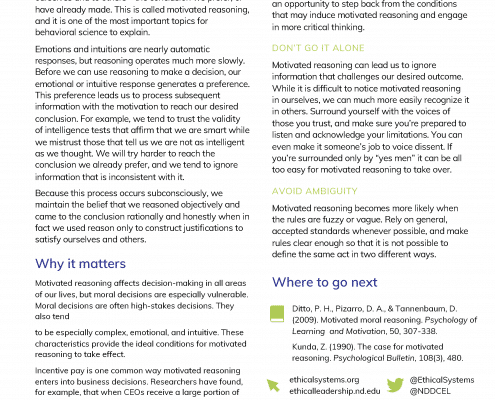
Motivated Reasoning
Behavioral Science One Sheets, Practitioner, Professor, Researcher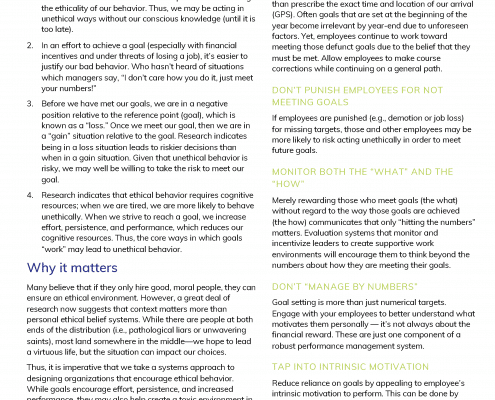
Goals Gone Wild
Behavioral Science One Sheets, Practitioner, Professor, Researcher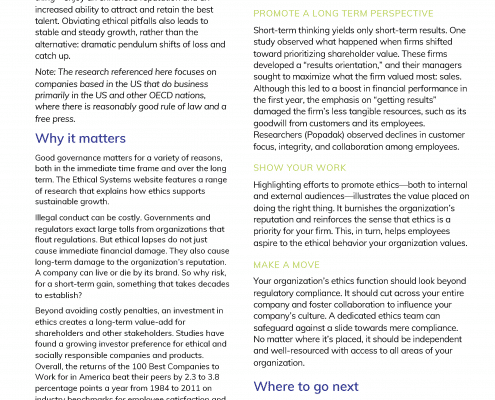
Ethics Pays
Behavioral Science One Sheets, Practitioner, Professor, Researcher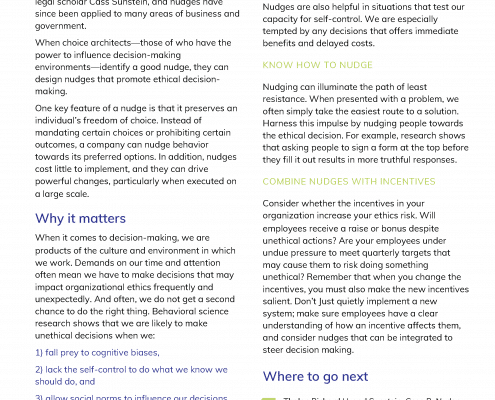
Speak Up Culture
Behavioral Science One Sheets, Practitioner, Professor, Researcher
Nudging for Ethics
Behavioral Science One Sheets, Practitioner, Professor, Researcher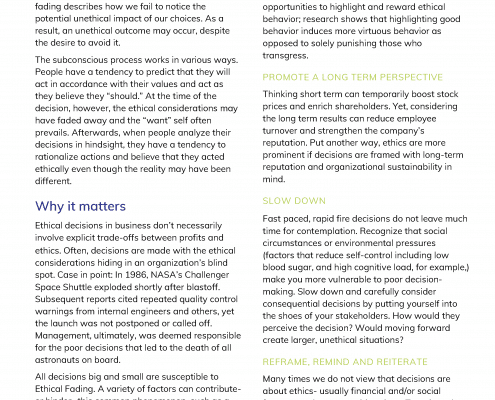
Ethical Fading
Behavioral Science One Sheets, Practitioner, Professor, Researcher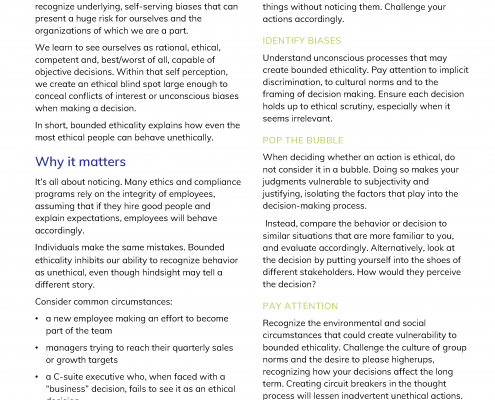
Bounded Ethicality
Behavioral Science One Sheets, Practitioner, Professor, Researcher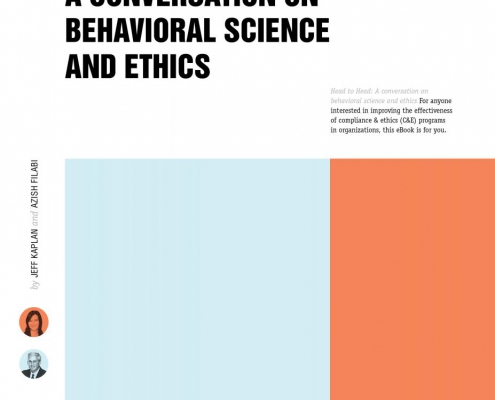
Head to Head: A conversation on behavioral science and ethics
E-Book, Leadership, Practitioner, Professor, Researcher, Teaching Ethics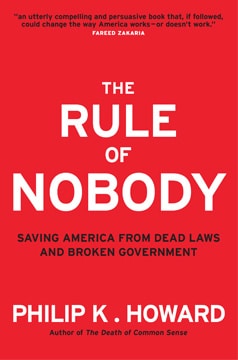
Book Summary: The Rule of Nobody
Book Summaries, Law, Practitioner, Professor, ResearcherIn The Rule of Nobody, Philip Howard describes how bureaucracy is stifling U.S. institutions as well as the spirit of autonomy and free will among Americans. We live within a system whereby layers upon layers of often incomprehensible and inconsistent regulations, mandatory disclosures and requirements create a society that is “governed by dead laws” — meaning that since many of today’s laws are so outdated, they have been rendered irrelevant because layers of new (and sometimes inconsistent) laws have been enacted after them, or they have become otherwise destructive to the social good because they hamper progress.

The Rule of Nobody [homepage | public library]
By: Philip K. Howard
Summarized by Azish Filabi
The book is packed with examples of inept laws replacing common sense human judgment. In many cases, government agencies are comprised of well-meaning individuals who can’t apply their common sense and best judgment to resolve the problems they are hired to manage.
His recommendations for restoring human control of democracy and bringing about good government involves a series of reforms (summarized below) towards principles-based regulation, including appointing independent commissions to review and propose amendments to existing laws, to mandatory sunset provisions of all laws with budgetary impact, thus compelling Congress to consider the present needs of constituents when allocating expenditures.

